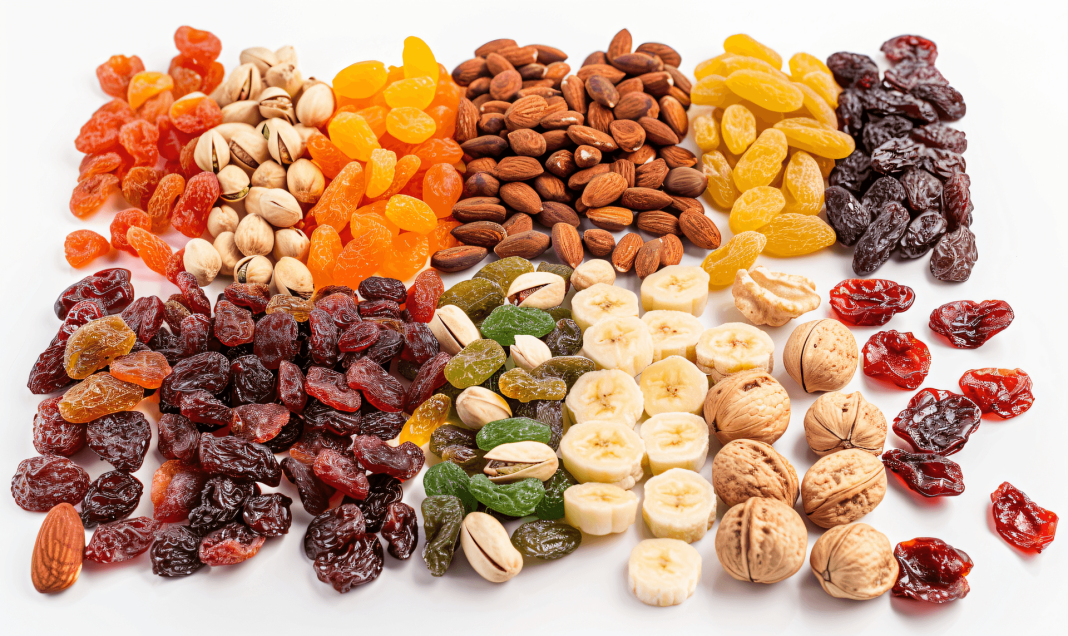This text is provided by the Pioneer Bird Blood Glucose Management Software! It helps you record blood sugar, blood pressure, and other health indicators, provides free tastings of sugar-free foods, as well as customizes diet and exercise plans to accompany you in sugar control.
In the vast world of healthy eating, nuts have won the favor of many sugar friends with their rich nutritional value and unique taste. They are rich in unsaturated fatty acids, dietary fiber, vitamins, and minerals, making them an ideal choice for healthy snacks. However, for diabetes patients, any food needs to be controlled in “quantity,” and nuts are no exception. Today, as a sugar control nutritionist, I will share with you the delicate balance between nuts and diabetes diets, while revealing those “four excessive” foods hidden in daily diets that may quietly raise blood sugar levels.
The energy and pitfalls of nuts
Although nuts are small, they are high in energy. Their healthy fats can provide lasting satiety, helping to control post-meal blood sugar fluctuations. For example, the monounsaturated fatty acids in almonds help improve lipid levels, while walnuts are rich in omega-3 fatty acids, which are beneficial to heart health. However, it is this “full of energy” characteristic that makes nuts a “sweet burden” for diabetes patients when consumed in excess. The calories in a handful of nuts are often beyond imagination, excessive consumption not only leads to exceeded total calories but may also indirectly affect blood sugar stability.
Moderate consumption, a wise choice
So, how can you enjoy the deliciousness of nuts without letting blood sugar get out of control? The key is “moderation.” Generally, the recommended daily intake of nuts is about a small handful (about 30 grams), which can meet the body’s nutritional needs without putting too much pressure on blood sugar. At the same time, choosing plain, unprocessed nuts is preferable, avoiding excessive sugar and salt in processed products.
Protect the pancreas from the “four excessive” foods
When discussing the moderation principle of nuts, we have to mention the “four excessive” foods that diabetes patients need to be cautious of:
1. High-sugar foods: Candies, sweet drinks, pastries, and other high-sugar foods are the “invisible killers” of blood sugar, excessive intake can rapidly raise blood sugar levels and increase pancreatic burden.
2. High-starch staple foods: Refined grains like white rice, white bread, although providing energy, lack dietary fiber, leading to rapid blood sugar spikes. It is recommended to eat with coarse grains, such as brown rice, oats, to slow down the rise in blood sugar levels.
3. High-fat foods: In addition to moderating nut consumption, fried foods, fatty meats, and other high-fat foods also need to be controlled. They are not only high in calories but may also affect insulin sensitivity.
4. Excessive alcohol consumption: Alcohol can interfere with the liver’s metabolism of glucose, affecting blood sugar stability. Diabetes patients should strictly limit alcohol intake, preferably avoiding alcohol consumption.
In the journey of diabetes management, scientific methods and tools are indispensable companions. In this regard, I would like to recommend a practical blood sugar management assistant that combines blood sugar recording, dietary analysis, and companionship, helping you easily record daily blood sugar changes, intelligently analyze the impact of diet on blood sugar, and provide personalized dietary advice. To encourage more sugar friends to enjoy healthy and delicious snacks, many platforms have launched activities to receive free sugar-free food. These sugar-free foods are carefully developed, retaining the richness of food while effectively removing sugar, allowing sugar friends to enjoy delicious food without worrying about blood sugar fluctuations.
In short, while nuts are good, excess is harmful. Diabetes patients should learn to find a balance between enjoying food and controlling blood sugar by consuming nuts in moderation, being cautious of the “four excessive” foods, combining the use of blood sugar management assistants and modern technological means, and timely receiving free sugar-free food benefits, jointly safeguarding the health of the pancreas, and enjoying a more free and secure life. Remember, healthy eating starts with moderation in everything.


